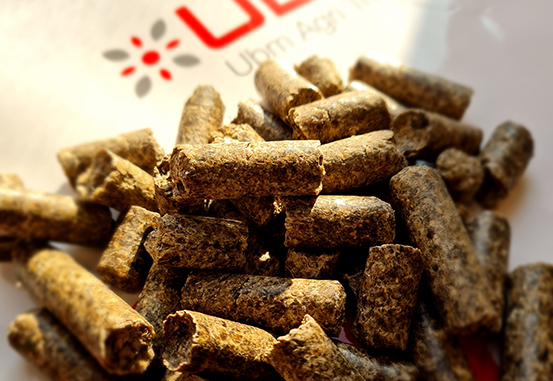- Home
- About
-
Our Products
- Grains
- Oil seeds
- Meals
- Oils
- Derivate
- UBM Group
- UBM Community
- Press
- Contact

Product description:
It is a by-product of the sugar industry, made by processing sugar beet. The noodles have the appearance of white thin slices of beets, crushed and with a fresh smell. The slices are pressed until they reach a dry matter content of about 23%.
Way of usage
Beet noodles have been recognized as a valuable source of feed. They have a high energy value, an important content of protein (between 7-10%) and minerals essential for animal health. They are also easy to digest, and due to their high fiber content can help prevent acidosis. Beet noodles can be a key ingredient in the ration of animals, especially for dairy and beef cows. Introduced into the diet of dairy cows, the product contributes to the proper functioning of the rumen - by reducing the risk of acidosis and, in general, the health of cows. The product contributes to the increase of milk production, having a demonstrated lactogenic effect. In the case of beef cows, beet noodles can replace some of the corn silage in the ration. They positively influence weight gain, and are indicated in the transition from liquid to solid feeding of calves, both before and after weaning. Beet noodles used in pig feed, contribute to weight gain, to obtain more supple carcasses, as well as to improve performance during pregnancy and lactation.
Storage
Sugar beet pulp pellets are easy to ensile, because they contain enough easily fermentable sugar residues. Properly ensiled the product has a dry matter content of over 20%, a light gray color, a pleasant sour smell and the same texture with fresh noodles. Its nutritional value is practically the same as that of the fresh product. Beet noodles must be stored on clean and flat surfaces. In fresh form, it is recommended to be used in maximum 5 days from delivery.